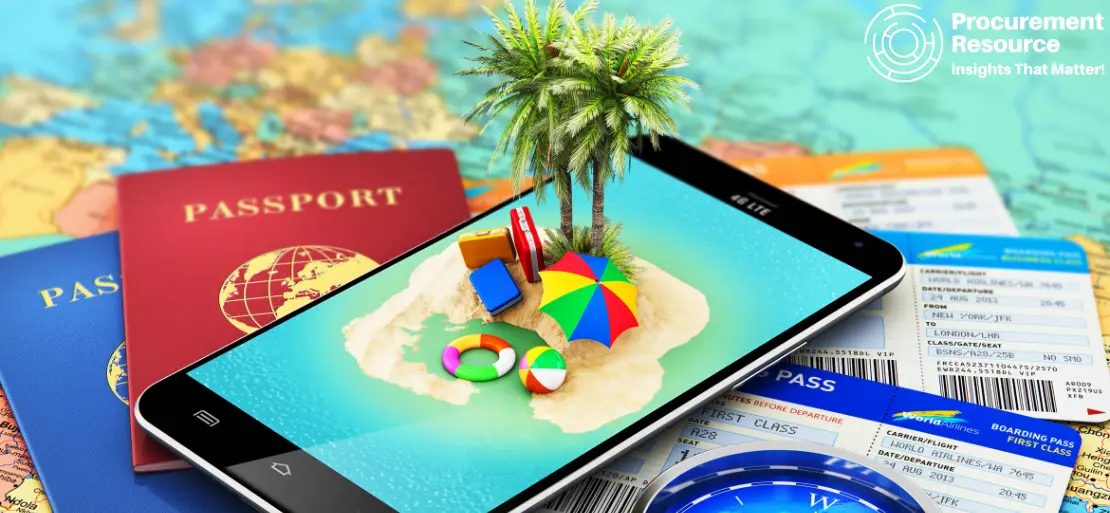Impact of COVID-19 on Global Travel and Tourism Industry

The COVID-19 pandemic has caused abrupt changes in people's lives in a very short period of time, affecting the global economy and causing widespread panic. The global tourism industry has been among the most severely hit industries by the COVID-19 pandemic, affecting various sectors such as hospitality, travel agencies, and tour operators, and all types of transportation services. Flights were grounded, cities came to a halt, trains ceased operations, and almost all public transportation ceased operations; while hotels, cafes, pubs, and restaurants were simply shut down, especially towards the end of 2020.
According to the United Nations World Tourism Barometer (UNWTB), international tourist arrivals fell by 72% between January and October 2020 due to slow virus containment, low traveller confidence, and significant travel restrictions that remain in place.
The decline in international tourist arrivals in the first ten months of 2020 was 900 million fewer than in the same period in 2019, resulting in a loss of USD 935 billion in export revenues from international tourism, more than ten times the loss in 2009 as a result of the global economic crisis.
The global tourism industry is expected to lose nearly 50 million jobs as a result of the COVID-19 pandemic, which is expected to cost nearly USD 22 billion. Significant loss in international tourism also led to severe loss to the global economy and GDP, especially in 2020 and the beginning of 2021.
The affects were felt across most of the regions and the regions which witnessed the highest drop in the number of tourists included Asia Pacific and Middle East and Africa. Europe, North America, and Latin America also witnessed the impacts of the pandemic as the governments imposed stringent regulations on the tourism industry to curb the transmission of the virus any further.
In India, a significant part of the population was employed in the travel and tourism industry. With the onset of the COVID-19 pandemic, large number of people lost their jobs. Foreign Exchange Earnings (FEE) fell by more than 75% between January and December 2020 in comparison to the same period in 2019. With business almost at a halt, players in the travel and tourism industry want the government to provide targeted assistance to the sector until vaccine-based confidence is restored, to help them meet operating costs and retain jobs.
The tourism industry in some countries, however, is showing gradual signs of recovery. Spain, the world's second-most visited country, received 3.2 million tourists from January to May in 2021 which is a tenth of the amount in the same period of 2019. But visits surged in June with 2.3 million arrivals, the best monthly figure since the onset of the pandemic, although still only 75% of the figure from two years ago.
Some countries caused chaos by making last-minute changes to entry rules. For instance- Denmark's decision to add Britain to its "red" list of countries with stricter travel restrictions threw London residents' vacation plans into disarray.
The international tourism industry now expects a rebound by the third quarter of 2021 and a return to pre-pandemic 2019 levels not before 2023, based on the assumption of a gradual reversal of the pandemic, the rollout of a COVID-19 vaccine, significant improvement in traveller confidence, and a significant lifting of travel restrictions by the middle of the year. After months of closed borders and travel bans, the expected rebound is also a result of large pent-up demand.
The pandemic has also had a significant impact on tourist attitudes. Personal sanitation and hygiene are now prioritised both by the travellers and the authority. Tourists are also avoiding crowded areas in favour of visiting more remote locations as the travel patterns have also shifted drastically.
Some of the new trends emerging in the sector include the importance of nearby places and short travel and the importance of local food. Sanitation, access to quality health care, and health and safety information will be major deciding factors for future travellers. In the future, the announcement and roll-out of a vaccine in various countries is expected to gradually boost consumer confidence and contribute to the relaxation of travel restrictions.


.webp)
.webp)